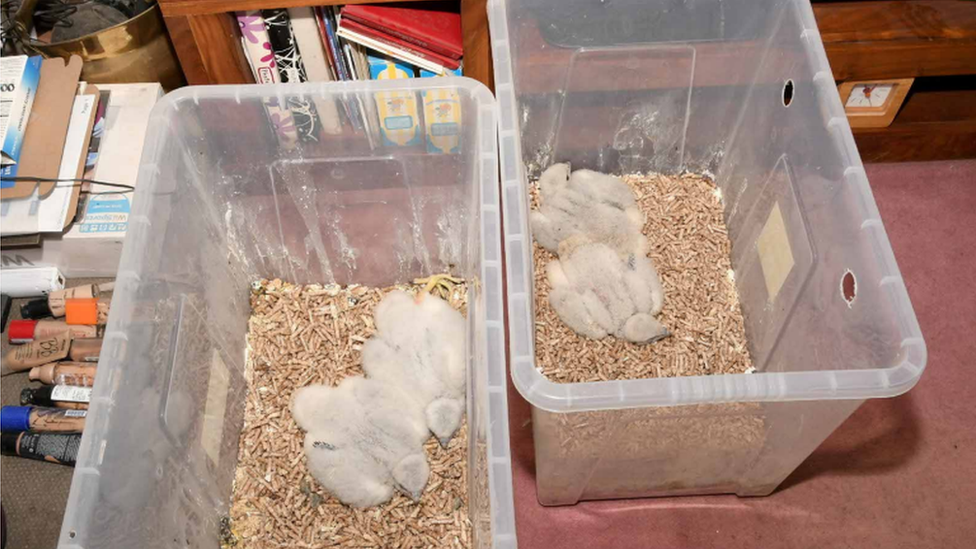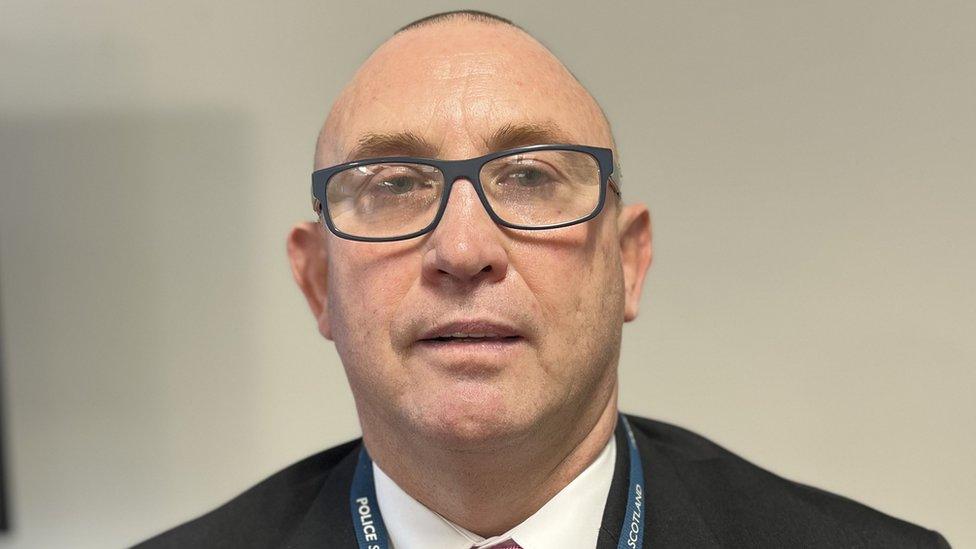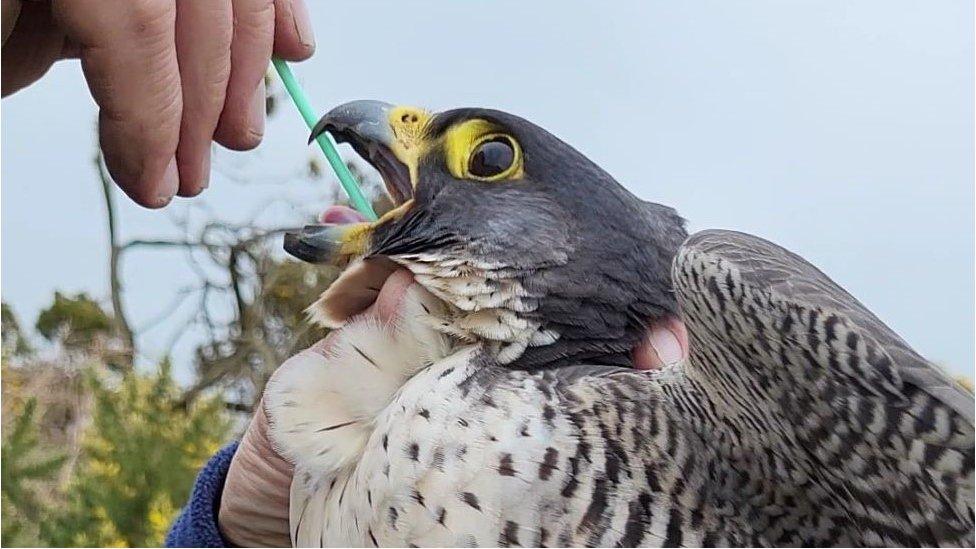DNA testing snares father and son who raided peregrine nests
- Published

Lewis Hall and Timothy Hall arriving at Jedburgh Sheriff Court
A part-time gamekeeper and his son who raided peregrine falcon nests have been banned from keeping birds of prey.
DNA tests on chicks and eggs found at the Berwickshire home of Timothy Hall, 48, and his son Lewis, 23, proved they were wild birds not bred in captivity.
The birds were being sold on to wealthy clients and used for racing in the Middle East.
Timothy Hall was sentenced to 220 hours of unpaid work. Lewis Hall was given 150 hours of unpaid work.
The pair, who had earlier pleaded guilty at Jedburgh Sheriff Court, were also banned from having any involvement with birds of prey for five years.
A total of 22 chicks and eggs were taken from protected nests in Berwickshire and sold for thousands of pounds.
An investigation proved the chicks and eggs had been taken from wild nests and not from parent birds in an aviary, as the Halls initially claimed.
The court heard the men are also still subject to an investigation from the HM Revenue and Customs due to the substantial amounts of money involved while a Proceeds of Crime hearing against Lewis Hall was continued for another six weeks.
Wild Scottish peregrines are regarded as the the most sought-after falcons due to their strength, speed and appetite for hunting.
Det Con Steven Irvine, who led the initial investigation, said: "If we had allowed this practice to continue it would likely have wiped out the peregrine population in the south of Scotland."

Wildlife officers found seven peregrine chicks and two eggs inside the Berwickshire house
At a previous hearing, Sheriff Peter Paterson told Timothy Hall that he had "carried out wilful breaches of wildlife laws you must have been aware of and carried out for profit."
He added: "Substantial sums of money were made from illegal sales in the Middle East."
Police operation
Det Con Irvine said the pair's home in Lamberton, Berwickshire, was searched in May 2021.
"We found seven chicks and two eggs within the home of the accused - and we were able to take DNA samples from them," he said.
"We were monitoring peregrine falcon nests with the Raptor Study Group at the same time and they had taken DNA samples from parent birds on those nests.
"SASA (Science and Advice for Scottish Agriculture) carried out forensic work that identified the chicks we recovered were not from parent birds in the aviary - as the accused had claimed - but they had been taken from a number of nest sites in the wild."
He said the chicks had been returned to populated nests where it was hoped that they would continue to thrive.

Detective Constable Steven Irvine from Police Scotland led the investigation
In the past 15 years the number of export permit applications for peregrines has risen from 73 to almost 3,500.
Prior to DNA testing police suspected that licensed breeders were taking wild chicks and passing them off as being bred in captivity.
From the initial raid at the Berwickshire cottage in May 2021, Operation Tantallon has led to a further 3,000 separate investigations into nest raiding - making it the largest wildlife crime operation in UK policing history.

DNA testing is carried out on a peregrine falcon
Earlier this month 61-year-old Gary MacFarlane from West Lothian was fined £2,100 and ordered to hand over £5,220 in cash which had been taken from his home after admitting 11 similar charges at Livingston Sheriff Court.
And last month Christopher Wheeldon, 34, from Derbyshire was jailed for eight weeks for his part in stealing wild peregrine falcon eggs.
Officers from the UK National Wildlife Crime Unit hope many more prosecutions are on the way.
Ch Insp Kevin Kelly of the UK National Wildlife Crime unit said: "The peregrine falcon market is a multi-million pound industry where criminals are exploiting vulnerabilities in licensing processes by taking wild birds of prey for overseas consumers.
"There is such a demand for our wild birds because they are seen as the strongest, fastest and most fierce hunters, and people are willing to pay for these exceptional birds as they are tricked into thinking they are getting legitimate captivity-bred peregrines."
He said "cutting edge" DNA technology was making it hard for criminals to continue to carry out this type of crime.